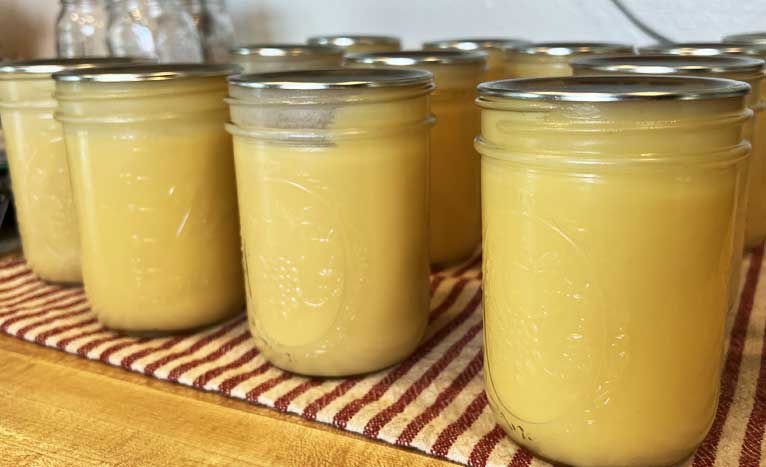
I find connections to organic farming in the most unexpected places. This time, it was in a random book I just picked up from the library because it sounded interesting—The Wilder Life: My Adventures in the Lost World of Little House on the Prairie by Wendy McClure (2011). Like me, my mom, and probably a sizeable percentage of the American population, McClure loved the Little House books when she was young, and as an adult she visited all the historic sites and read all the books that others had written about Laura Ingalls Wilder.
But the part of the book that intrigued me the most was when she decided to try learning some homesteading skills—like churning butter and making soap—for herself. She decided to attend a “Homesteading Weekend” at Samuel and Heidi Ackerson’s homestead in southern Illinois, called Clover Meadow Farm. While her motivation for learning skills was to connect with the past, she was shocked to discover that most of the other people at the conference were Christian survivalists preparing for the end times by stockpiling foods like canned butter. That weirded her out so much that she left the conference early and beat a hasty retreat back to Chicago. This was in either 2009 or 2010.
The reason this anecdote intrigued me so much is because I knew those people. I went to church with them. They came out to our homestead (started in 2005) all the time. We were the ones who taught them how to make soap and lip balm and cheese, how to keep bees and milk goats. And at the time, I, too, thought that there was going to be some kind of apocalypse and that we needed to be self-sufficient and grow all our own food. But my family was never the prepper type with mountains of cans and freeze-dried food in the basement. I snickered at McClure’s reference to canning butter, since that was exactly the kind of thing we avoided. Better to keep your own dairy animals—in our case, goats—so that you always had a supply of fresh milk.
I hope at some point I’ll be able to find some documentation of why a small segment of evangelical Christians got so survivalist around 2008. Not to say that a feeling that we were living in the end times wasn’t much more widespread—it’s just that most evangelicals believed they were going to get raptured before the bad stuff started happening, thus no need to hunker down in a bunker. But what McClure didn’t realize (since it wasn’t the focus of her book) is that it wasn’t just Christians who thought civilization was about to collapse. We had plenty of secular people come out to our farm, too. Their big concern was peak oil, which they said was one of the causes of the recession. With gas prices at the pump double or triple what they’d been just a year before and with lots of people we knew out of work, that didn’t seem far-fetched at all.
And yet even that isn’t the whole story. The recession of 2008 wasn’t the first or last time that fear of some kind of catastrophe sent people running back to the land. It happened during the Great Depression and the oil crisis of the 1970s, too—not to mention the most recent iteration during the COVID-19 pandemic. Of course, when doomsday fears are the main reason people go back to the land, they often fail at homesteading and return to the city as soon as the imminent crisis is past.
But there are other reasons to homestead—a closer connection to nature; producing quality, healthy food where it might not be otherwise available; striving to improve the soil and leave a piece of land better than you found it. Those were the reasons my family started homesteading in the first place, and that’s why we’re still enjoying fresh produce from our farm today, while the preppers are stuck with a basement full of expired, rusting cans.
I just finished reading the novel, Arcadia, by L. Groff. It describes, questions, probes, appreciates, criticizes, an intentional community in upstate New York. Not exactly the topic of your column but some similarities in looking at motives, etc.